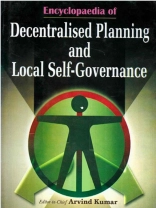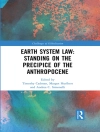Decentralization is referred to as a process of sharing of powers by the Central ruling groups with other groups, each having authority within a specific area or the State. From the point of view .of norms, it means presence of formal political structures for each defined area representing a combination of local as well as Central interest, who exercise the powers of decision making at the local level and such allocation of powers is protected by formal as well as normative rules accepted by the Centre. With focus on instrumentalities of Local self-Governance of Panchayati Raj (PR) bodies, the present work analyses the provisions in Central and State PR Acts, the critical issue of exercising powers and apprehensions thereof affecting effective and autonomous discharge of developmental functions between Centre and States, denial of overall control to Gram Sabha. Further, following the discussion on the concept of institution, distinction between public organisation and bipolarity of institution-building process, the present work also discusses Panchayats as institutions and the 73rd and 74th Constitutional Amendment. Then, with a diagnositic angle, it identifies the factors that could account for PRIs institutionalisation-such as politicisation, leadership, boundary management, environment, etc. We hope, the work will be of immense importance to those involved in policy planning, administrators, academicians etc.
Dr. Arvind Kumar
Encyclopaedia of Decentralised Planning and Local Self-Governance [PDF ebook]
Encyclopaedia of Decentralised Planning and Local Self-Governance [PDF ebook]
Cumpărați această carte electronică și primiți încă 1 GRATUIT!
Limba Engleză ● Format PDF ● Pagini 290 ● ISBN 9789390398652 ● Editura Anmol Publications PVT. LTD. ● Publicat 2001 ● Descărcabil 3 ori ● Valută EUR ● ID 8883853 ● Protecție împotriva copiilor Adobe DRM
Necesită un cititor de ebook capabil de DRM












